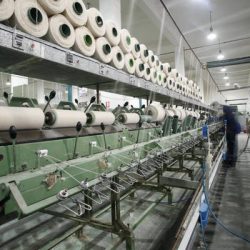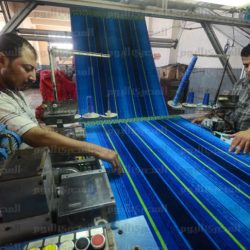COVID: Focus on the variable costs that you can control
In this article series we ask leading energy management experts about the impact of coronavirus.
Rabab Manee, Egypt
Head of Energy and Environmental Sustainability, Oriental Weavers

My company, Oriental Weavers, is extremely dependent on the import of raw materials to manufacture carpets. Due to the disruption of global supply chains and logistics over the past three months we have been operating at around only 50 per cent capacity. In this situation, we have to really focus on the things we can control such as energy efficiency because it offers industries a great opportunity to cut costs. We cannot do much about the fixed costs of raw material imports, but we can focus on variable costs like energy consumption.
Operational control and system optimization are among the most effective low-cost measures that can be implemented immediately. Most companies prefer to operate equipment within their ‘comfort zone.’ Meaning, they adjust their processes to operate on a higher energy setting just to be on the safe side, without complains. For example, when we began to analyse our energy consumption we realised approximately 30 per cent of our energy was used to operate the compressed air network. With this knowledge we were able to readjust the process settings to just 9.5 bars instead of 13 bars. In just one year of monitoring our energy use at Oriental Weavers, we reduced our energy consumption by 7 percent, and saved a significant amount as a result. I’m certain this has improved the company’s resilience to the current economic crisis.
Egypt’s unemployment rate rose to 9.2 percent in April as a result of the economic repercussions of the coronavirus pandemic. Some industries are expected to fare better than others, for example medical supplies and food processing. Whereas, other industries considered non-essential, such as automotive, will inevitably contract. The informal industrial sector, which includes food processing and small workshops, is expected to be hit the hardest. Learn more about how UNIDO’s Industrial Energy Accelerator is enabling a market environment for innovation in Egypt’s industrial sector.
Innovation in a time of COVID. The COVID-19 pandemic will change the global industrial sector forever. In this article series we ask leading energy management experts about how the virus has affected their country’s industrial sectors and what businesses could be doing to prepare for an uncertain future.



